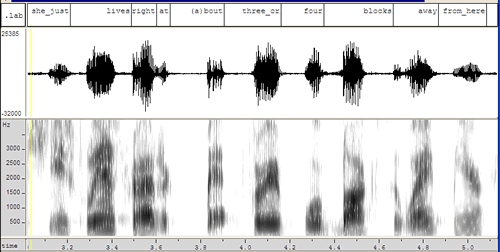December 30, 2003
Mispronunciation -- or prejudice?
YourDictionary.com's press release on Top Words of 2003 has sections on "Top Ten Words", "Top Ten Names", "Top Ten Youthspeak Words", etc. -- and an odd little section entitled "5 Top Mispronunciations by President Bush in 2003". I'm surprised that this got past yourDictionary's eminent " Advisory Council of Experts". As far as I can see, only one of the five cited examples is actually a genuine mispronunciation -- "Anzar" for "Aznar" -- and this is a mistake that Bush apparently made in 2001! The rest are either standard American pronunciation variants, or instances of regional variation in the treatment of reduced vowels around liquids.
1. a-MERR-ca
a-MER-i-ca (America)2. NEW-cue-ler
NEW-clee-er (nuclear)3. JU-ler-ee
JU-wel-ree (jewelry)4. An-zar
Spanish Prime Minister Jose Maria Aznar5. Ne-VAH-duh
Ne-VAE-duh) (Nevada)
Taking the last one first: the stressed syllable in Nevada is given in both versions by Merriam-Webster and American Heritage (with the vowel of cot or the vowel of cat). Don't the folks at yourDictionary.com, who are in the online dictionary business, consult any dictionaries before putting this stuff out?
Two of the remaining three (nuclear and jewelry) are widespread variant pronunciations, not much more culpable than "Febyuary" for February, which Merriam-Webster gives as the first pronunciation. With respect to the prounciation of nuclear, both M-W and American Heritage cite Bush's pronunciation as one of their variants, with a usage note (the American Heritage calls it "generally considered incorrect"). However, as Geoff Nunberg writes, "'nucular' is a choice, not an inadvertent mistake.", and apparently more standard than not among people who deal routinely with nuclear weapons. With respect to jewelry, I'd like to look at a spectrogram of the offending pronunciation before categorizing it -- it might just have been the version that M-W represents as ['jül-rE]. A true schwa vowel between /l/ and /r/ is unlikely, but partial or complete vocalization of the /r/, if it happened, would be an instance of a widespread pattern.
While censuring the president for perhaps inserting an extra schwa in jewelry, yourDictionary slags him off for leaving one out in America. The question of what happens to fully reduced vowels, especially around liquids like /l/ and /r/, varies in complicated ways in different varieties of English. In the speech of the South Midlands, reduced vowels are often transformed by assimilation into lengthening of adjacent consonants or vowels, as can be heard in this example of speech from a woman from Tennessee (waveform and spectrogram below).
Note that the treatment of reduced vowels around /l/ or /r/ is at stake in three of the five cited cases. Even without getting into sociolinguistic studies of such things, we can be pretty confident that these are stigmatized changes in progress, or long-standing regional or class prejudices, just by reading how upset the language maven Dr. Richard Lederer, "the 2002 recipient of the Toastmasters International Golden Gavel Award," gets about the whole business.
So, let's sum it up. Depending on what Bush actually said for jewelry, one or two of the examples are normal variant pronunciations, two or three of the examples are widespread regionalisms (or other socially marked variants), and one is a genuine mistake in pronunciation -- which was made in 2001, well past the statue of limitations for mistakes of 2003!
Chill, yourDictionary guys -- lexicography shouldn't be prostituted to treat stigmatized class or regional speech as "mistaken". If you want to make a list of presidential regionalisms, fine -- but don't call them mispronunciations. And don't throw in variant pronunciations without checking them, just because they're different from what you say yourself.
[Update: two friends on yourDictionary's panel of experts, Stephen Anderson and Mark Aronoff, confirm that they didn't see this list before it went out, and agree in essence with my analysis of the cited "mispronunciations."
Mark observes that the "point is a very subtle one for non-linguists," which is certainly true, and that "Bush-haters will grasp at anything", which is also true, though I'm not sure whether it's a defense or a further criticism.
Steve notes that the yourDictionary site "does ... contain a considerable amount of useful information, generally correct as far as I've sampled it", a point that I agree with. He concludes that "I guess it's a bad thing for linguists to be associated with factually incorrect -- and overly normative --- observations about language, but otherwise I would consider your reaction a bit overwrought....." Well, OK, maybe so. But getting "a bit overwrought" is kind of a weblog tradition, after all. It's better than being underwrought, though of course here at Language Log we aspire to being exactly wrought enough.]
Posted by Mark Liberman at December 30, 2003 03:17 PM